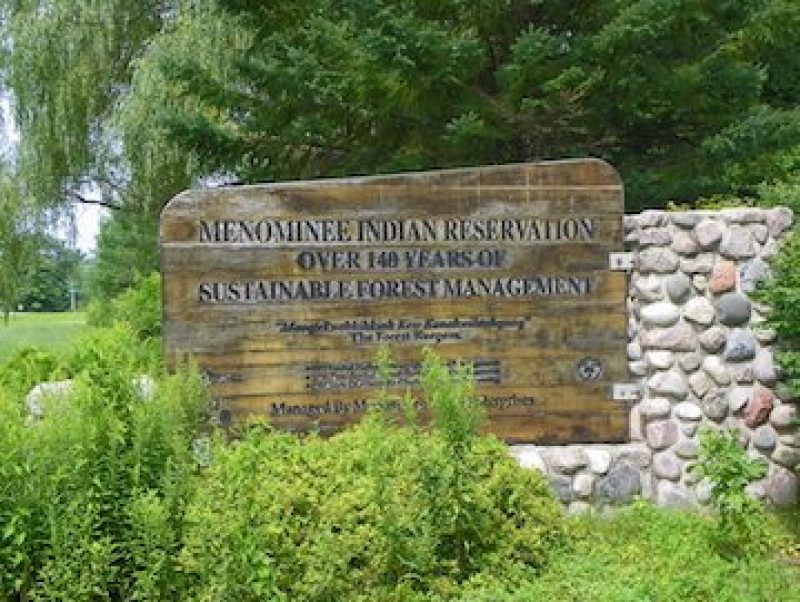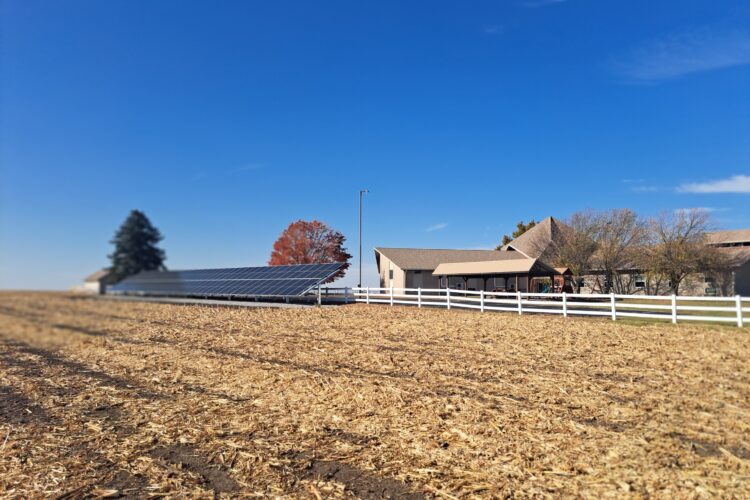Flows Repeatedly: Learnings from the Menominee Nation

By Tom Small.
NAPANOH PEMECWAN—Menominee for “flows repeatedly.” In nature, there is no foreground or background, no hierarchy, only relations, patterns of change and repetition. Train yourself to see the repeated patterns, to understand, feel, and identify with the flow.
With these two Menominee words and their implications, Jeff Grignon, Regeneration Forester for the Menominee Nation in Wisconsin, began the 2019 conference of the Michigan Stewardship Network. His keynote and workshop topics: “Listening to the Forest” and “The Language of Plants.”
The Menominee have sustained themselves and their logging operation for more than a century on their 230,000-acre Wisconsin reservation yet have left the forest biodiversity and biomass richer than when they began. And here was Jeff, in charge of regenerating the forest, to inform us, with aid from a few Menominee phrases, how he “listens” to the forest and responds to her language.
Jeff’s emphasis was on the Sacred underground: anamahkamek winskaw, below-ground communication through roots and their symbiotic partners, fungal networks of mycorrhizae or mycelia, “the Wood-Wide Web.” Elder or “mother” trees stand at the center of far-reaching webs, sharing food, medicine, and wisdom with dozens of younger trees, of the same and different species.
Regeneration at the “Edge of Chaos”
The elder tree, Jeff told us, “teaches” a newcomer to join the community, or to move on; so, at the farther reaches of each network, there is continual interchange, as plants shift communities and exchange chemical and genetic information. There, at the “edge of chaos,” new patterns emerge from the ebb and flow of order and change. Each organism and the system as a whole struggle to maintain balance, kotapeskocekan, a dynamic equilibrium, ever-changing in order to remain the same. Napanoh pemecwan.
To aid in regenerating the forest, cultivate circles—not rows or squares. Work with the circular networks and successional stages. For instance, bring in pollinator habitat before trees take over. Understand the flow before acting. Above all, avoid disturbing intercommunication by which plants themselves establish and sustain community. Observe. Listen. What are the mosses telling you? Wait.
The language of plants, phenomenologist Michael Marder tells us, is “an articulation without saying.” Plants articulate in both senses of the word: they express, and they connect. They articulate the elements—earth, air, fire, water—flowing them together in transformative cycles of sacrifice and gift exchange. They cycle and articulate life itself, the fabled “Round River” that flows back into itself.
For many indigenous peoples such as the Menominee, who proclaim “we are the forest,” dialogue between humans and plants is their heritage, their “everyday awareness.” It flows from their original identification with land and creatures, “all our relations.”
We Have Forgotten the Language
Most of the rest of us, imprisoned within our colonizing mentality and language, have expropriated the culture and being of the plants. They are property: a quantifiable resource or beautifying decoration. Even though we care for them, we are masters, they only servants to our desires, without rights or purposes of their own. At worst, they are “green things that stand in the way.”
No, says Jeff Grignon. “They are our relations and our original teachers, but we have forgotten the language. Relearning that language will bring us to the path of healing and a sustainable future for all of us.”
Jeff and his friend Robin Kimmerer offer us a way to begin decolonizing, remembering, and healing: respectfully acknowledge the plant, using the same language as you would with family, your kin; become aware of the plant’s specific energy, rhythm and “song,” which enfold and express her entire history; allow your own rhythm and energy to attune to and flow with the plant’s; as the “doors of perception” open, pass through them into a new state of mind and being, in community with “all your relations.”
It won’t be easy. Trust the teachers. “The plants still remember, even when the people have forgotten.”

